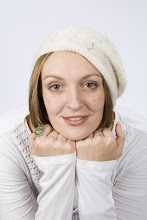
"What's in a name? that which we call a rose,
By any other name would smell as sweet;
So Romeo would, were he not Romeo call'd..."
according to Juliet, anyway. Her simple words are enough to convince the star-crossed lover to exclaim, "Call me but love, and I'll be new baptiz'd; Henceforth I never will be Romeo" (II.ii.45-47, 53-54).
Ahh... if it were so easy. Are our names truly so insignificant? Would Juliet make the same argument mere days later when she became Juliet Capulet Montague, her name altered by that which she came so much to love? According to her previous reasoning, Juliet would be Juliet, regardless of Capulet, regardless of Montague, regardless of the alphabetical scribbles we take on that seem to define us. Could Romeo (the person) be anymore constant than Romeo (the name)?
I doubt the young Capulet knew that we shed skin cells like snakes. According to our own biology, by the time we are twenty years old, we will have replaced our skin cells nearly 200 times over (ASU, par. 10). So, by the time we are just coming to know ourselves, we have already worn 200 different skins. But do we ever really shed our souls? American author, Annie Dillard is always startled to rediscover the old self she had somehow forgotten. At every shocking realization she exclaims, "You again" (11).
At the end of living through hundreds of different skins, through seemingly hundreds of different lives, she notes:
Your very cells have been replaced, and so have most of your feelings--except for two, two that connect back as far as you can remember. One is the chilling sensation of lowering one foot into a hot bath. The other [...] when you feel the chill spread inside your shoulders, shoot down your arms and rise to your lips, and when you remember having felt this sensation from always, from when your mother lifted you down toward the bath and you curled up your legs: it is the dizzying overreal sensation of noticing that you are here. You feel life wipe your face like a big brush. (249)
I felt the broad brush stroke just last week, when the not-so-shocking realization came that my driver's license expired. Upon arriving at the Office of Motor Vehicles and handing the attendant my former driver's license, the woman curtly informed me that an impediment had been put on my record because of what else? My name. I needed my birth certificate. In Idaho, the court dictates what name you will be given--and they stick with birth names.

Rewind to that time when I was an infant, hurling downward into a baby's first bath. For nearly twenty-six years since then, my given name held true: Angela Heather McRae. Then, although I had already shed at least 200 different skins, I yearned for a new shape--to be called not just friend, sister, daughter, but wife. The updated social security card and Utah driver's license read Heather McRae Bosworth. Renewal. Why did I shed Angela, I ask myself now. Too long was probably the strongest argument--that and wanting to be defined by family, by history. Unlike fickle Juliet, we look for our names to define us. Still, I sat in shock at the DMV, greeting my long-lost self. Hello again, Angela. Where have you been the past seven years? I tilted my face upward. Swipe.
Romeo and Juliet got a lot wrong, even if you are part of that sickening romantic audience that believes they got one thing right. We cannot merely be who we have always been--without life's experiences marking us! Otherwise, what would be the point of life? We are composed of our given names and of more than our given names. We are made up of life. How else could Juliet exclaim, "Oh happy dagger!" (V.iii.169-170)? How else "happy" without the addition of Montague to her graphemic roll call? How else without first knowing and loving Romeo?
So, Juliet Capulet Montague was the same person and yet a changed person from just Juliet Capulet. Who, then, is this new person--this same person--on my driver's license? As I sat at Motor Vehicles, vacillating between the options of Angela H. McRae Bosworth, Angela Heather Bosworth, Angela H. M. Bosworth, I struggled to understand what happened to Heather McRae... and what happened to Heather Bosworth--without realizing, as I do now, that I am who I have always been, though changed. I settled with the office attendant for Angela Heather M. Bosworth (because anything longer wouldn't fit on the license), even though I still struggle to remember who Angela is. She's a vague, misty ghost--one that whispers memories of angels and another retired name: Sora McRae, who once lived in the Transylvanian countryside of Romania. Part of my consecrated mission as an eternal soul and as a human being, is living up to Angela, in ways too sacred to relate, if sometimes difficult to remember.

My latest trip to Motor Vehicles taught me that I
am still Angela, that I have always been Angela... but that (due to three angelic little creatures I grew inside this constantly shedding skin), I am also, and on some level always will be, Bosworth. Those two names, tacked onto opposite ends of my center, are no less relevant, no less a part of me. I am who I always have been; I am who I was at birth. I am. I remain. I persist. But my experiences shape me. I am member, teacher, spirit, daughter, cousin, niece, sister, mother, griever, guide.
As I legally drove back from the State offices last week, I couldn't help but gape at the expiration date on my new card: 2017?! Surely the world will end by then! And yet often life surprises us with the most unlikely occurrences. So, whether the world ends in eight years or not, I know this: the world will be a different place--and a vastly similar one. We embark and we arrive back home.
Works Cited
ASU. "Building Blocks of Life." Ask a Biologist. 14 Sept. 2009. 17 Sept
Dillard, Annie. An American Childhood. Harper & Row: New York, 1987.




